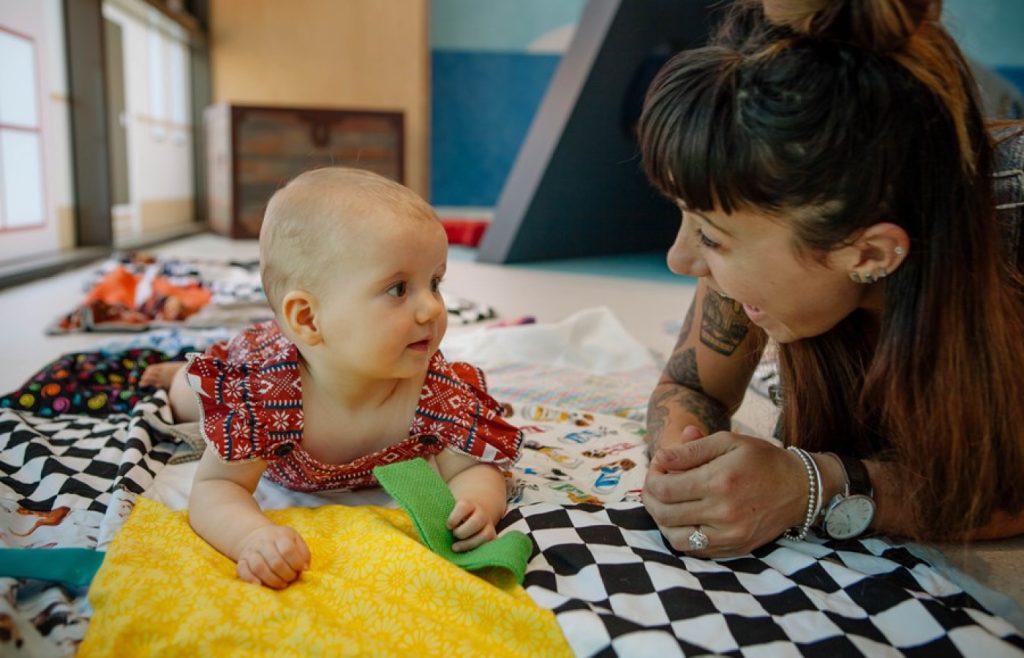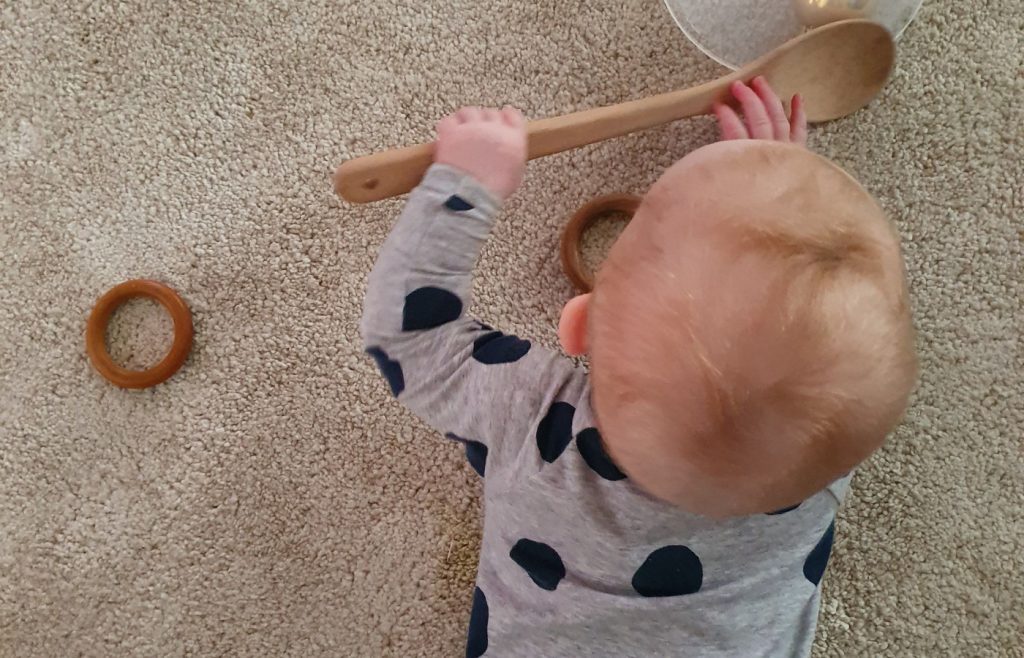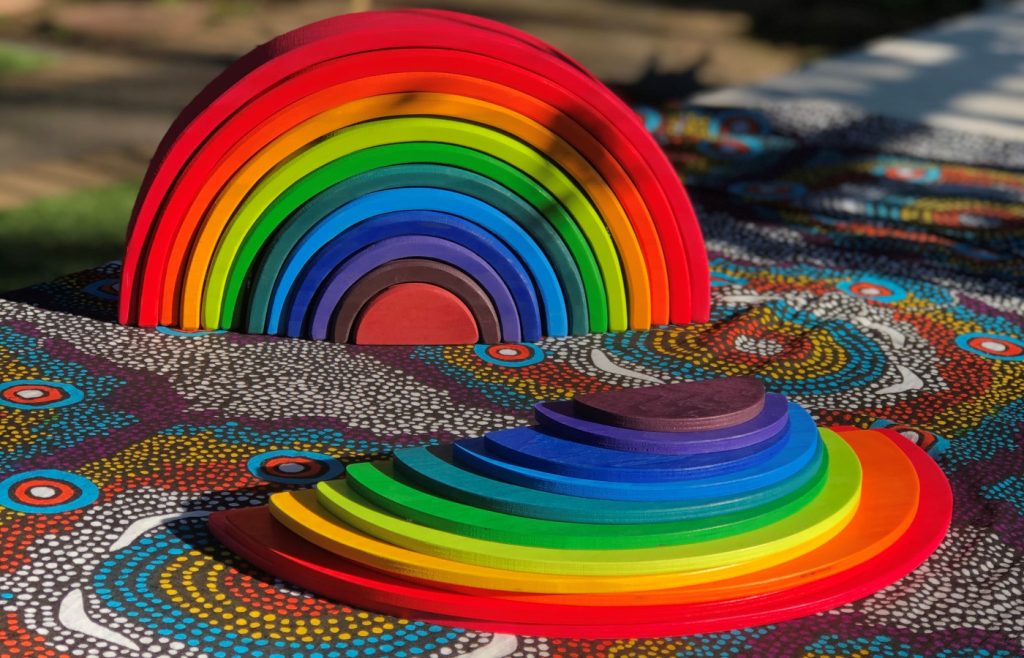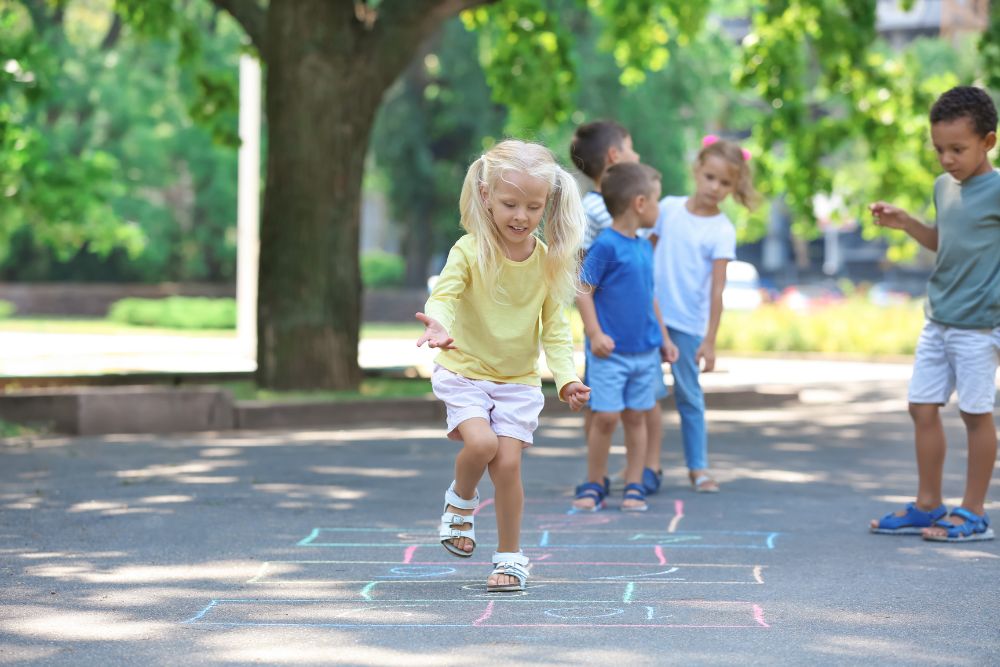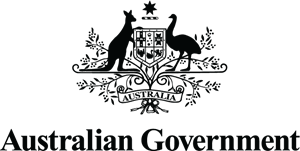Materials Required
- Tray or tub
- Small bowls for each of the materials
- Sand and/or soil
- Flowers and seed pods
- Plant cuttings
- Sticks and rocks
- Plastic animals
- Sticks or rocks can be used as an alternative to set up your small world play, Use sticks and rocks as animals and people within the scene (optional)
Preparation
Choose a subject for your small world that the child has experience or an interest in – Collect all the materials that you will be using – Place separate materials into separate bowls – Fill the tray with sand and soil.
Method (or Ideas)
- Select a location for the Small World Play to be set up.
- Place the tray with sand and soil on the low table.
- Place the bowls with materials nearby, within reaching distance.
- Start creating your own Small World Play scene.
- Play with your Small World with your child
Facilitation Tips – What To Say
- “Remember, when we to the beach yesterday and collected some seed pods, rocks and sticks. Well, today I thought you and I can create a place for the small animals to live?”
- Allow time for the child to decide and place the materials into the setting on their own. Provide support when asked by your child.
- Create a problem that is happening to the Small World, such as “It is about to rain, what do you think the animals will do?”
Extend the Experience
- The Small World Play topic can be from a recent family event, such as a birthday or holiday.
- Children’s picture or non-fiction books provide facts and further information about the different objects in the scene.
- Engage with the oldest surviving culture in the world. Explore First Nations Peoples by researching their culture and ways of being and knowing.
- Learn the name of the Traditional Owners where you live. In Darwin, the Larrakia People are the traditional owners and custodians of the land.
- Research and attend public celebrations organised by First Nations Peoples in your local community.
- Visit the local library for picture storybooks by First Nations Authors that provide their Dreaming on the creation of country and creatures
WHO Guidelines for Physical Activity & Sedentary Behaviour
This activity offers the opportunity for young children along with their parents and/or carers to participate in a low level of physical movement.
The level of physical activity can be increased by incorporating a walk to find objects to use within the Small World Play
Early Years Learning Framework
Outcomes
- Children develop their emerging autonomy, inter-dependence, resilience and sense of agency
- Children become socially responsible and show respect for the environment
- Children develop dispositions for learning such as curiosity, cooperation, confidence, creativity, commitment, enthusiasm, persistence, imagination and reflexivity
Principle
Principle 1: Secure, respectful and reciprocal relationships. Through a widening network of secure relationships, children develop confidence and feel respected and valued.
Practice
Practice: Cultural competence. Cultural competence is much more than awareness of cultural differences. It is the ability to understand, communicate with, and effectively interact with people across cultures.

